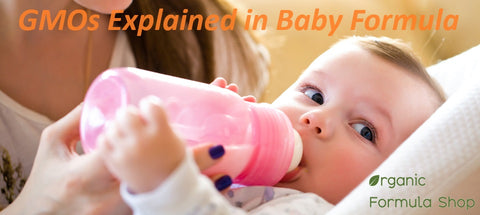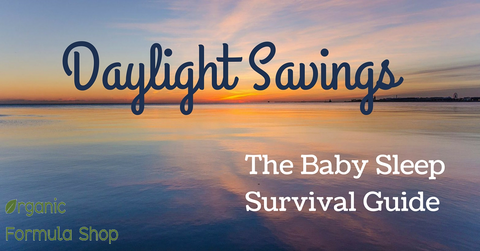How much formula does your baby need?
General guidelines for formula-feeding
Feeding your little one is one of the most important tasks as a new parent. While the American Academy of Pediatrics recommends exclusive breastfeeding for the first six months and continuing breastfeeding alongside solid foods for the first year, this may not always be possible or preferred. Choosing to exclusively bottle feed your newborn is a personal decision that many parents make for various reasons. Whether it's due to personal preference, medical reasons, or lifestyle factors, bottle feeding can be a practical and effective way to nourish your baby. Whether you choose to breastfeed, use formula, or a combination of both, as long as your baby is healthy and thriving, you're doing a fantastic job!
Cow's milk-based formulas are the most common go-to option for formula-fed babies unless there are specific health reasons to choose otherwise. Soy-based formulas are only recommended under medical guidance when your little one is dealing with sever allergies.
Now, let's discuss feeding guidelines. Every baby is unique, so how much they eat depends on factors like age, weight, and appetite. It's always wise to consult your pediatrician to tailor a feeding plan that best suits your child.
Newborns have tiny tummies and need frequent feedings, as small as a marble in size, which means they can only take in small amounts of liquid at once. From birth to 6 months, breast milk or formula provides all the necessary nutrition. As your baby grows, you can introduce various foods between 6 and 9 months while still offering breast milk or formula. By 9 to 12 months, your baby's diet should become more balanced, with half of their calories coming from breast milk or formula and the other half from solids.
These guidelines are for babies who are exclusively formula-fed for the first 4 to 6 months and then fed a combination of formula and solids up to age 1. If your baby is getting a combination of breast milk and formula, talk to your pediatrician for separate advice. Your pediatrician can tell you where your baby falls on the growth charts, ensure they're growing steadily, and help you ensure they're getting a healthy amount of formula.
Tips for exclusively bottle-feeding your newborn

It's important to mention that bottle feeding can still be an excellent opportunity for you to bond with your child. Formula-fed babies tend to feel more secure if their mum, dad, or caregiver gives most of their feedings.
Even with a bottle, feeding sessions create opportunities for bonding between parent and child. It's a time to cherish as you hold your little one close, perhaps trying skin-to-skin contact and engaging with them through eye contact and soothing words. Enjoy these moments of connection with your baby!
Here are some tips for exclusively bottle-feeding your newborn:
-
Selecting Formula: Choosing the right formula is crucial if you're exclusively bottle-feeding. Various types of infant formulas are available, including cow's or goat milk-based, plant-based, and specialized formulas for specific dietary needs. Always consult with your pediatrician to determine the best formula for your baby.
-
Feeding Schedule: Establishing a feeding schedule can help ensure your baby receives adequate daily nutrition. Newborns typically feed every 2-3 hours, but every baby is different. Pay attention to your baby's hunger cues and adjust the feeding schedule accordingly.
-
Feeding Technique: Hold your baby in a comfortable position while bottle feeding, ensuring that the bottle nipple is filled with formula to prevent your baby from swallowing air. Tilt the bottle so that the nipple is always filled with formula and not air.
-
Bonding Opportunities: Bottle feeding provides valuable bonding opportunities for caregivers and babies. Use feeding time to cuddle, make eye contact, and communicate with your baby. Skin-to-skin contact during feeding can also promote bonding and emotional connection.
-
Sterilization and Hygiene: To prevent bacterial contamination, it's essential to sterilize bottles, nipples, and other feeding equipment regularly. Tip: Follow the manufacturer's instructions for proper sterilization and cleaning techniques.
-
Monitoring Weight Gain: Keep track of your baby's weight gain and growth patterns to ensure that they are receiving adequate nutrition. Regular visits to the pediatrician can help monitor your baby's growth and development.
-
Seeking Support: If you have questions or concerns about bottle feeding, don't hesitate to seek support from healthcare professionals, lactation consultants, or parenting groups. They can offer guidance, support, and reassurance as you navigate the journey of bottle-feeding your newborn.
Hunger Cues
It's essential to watch your baby's cues for hunger and fullness and feed them accordingly. By paying attention to your little one's cues and responding promptly to their hunger signals, you can establish a nurturing feeding routine that meets their needs and supports their growth and development. These cues can be categorized into three distinct phases: early, mid, and late cues. Remember, every baby is unique, so learning and understanding your baby's hunger cues may take some time.

Early Cues:
Early cues are subtle signs that a baby communicates to express their needs before they become distressed. Recognizing these cues allows caregivers to respond proactively, meeting the baby's needs before they escalate. Early cues include:
-
Rooting Reflex: When a baby turns their head and opens their mouth in search of a nipple when touched on the cheek or mouth.
-
Hand-to-Mouth Movements: Babies bringing their hands or fists to their mouth, indicating hunger or a need for comfort.
-
Increased Alertness: A baby becoming more awake and attentive, showing readiness for interaction or feeding.
-
Sucking Movements: Sucking on fingers, fists, or objects as a self-soothing behavior or hunger cue.
-
Eye Movements: Increased eye contact or widening of eyes, signaling engagement or anticipation.
Mid Cues:
Mid cues are more pronounced signals that a baby exhibits as their needs become more urgent. While still manageable, responding to mid cues promptly prevents the baby from becoming overly distressed. Mid cues include:
-
Restlessness: Increased movement or squirming, signaling discomfort or a need for a change in position.
-
Fussiness: Irritability or fussiness, often accompanied by whimpering or mild crying, indicating hunger, discomfort, or fatigue.
-
Grimacing: Facial expressions such as furrowed brows or wrinkled nose, suggesting discomfort or dissatisfaction.
-
Decreased Engagement: Reduced responsiveness to stimuli or decreased eye contact, signaling tiredness or overstimulation.
-
Vocalizations: Coos, grunts, or whimpers, serving as early forms of communication to express needs or desires.
Late Cues:
Late cues are clear indicators that a baby's needs have not been met, and they require immediate attention to prevent distress or discomfort. Responding promptly to late cues helps restore the baby's comfort and emotional well-being. Late cues include:
-
Crying: Intense crying, often loud and persistent, indicating hunger, discomfort, fatigue, or other unmet needs.
-
Arched Back: Arching of the back accompanied by crying, signaling discomfort or pain, such as gas or reflux.
-
Hitting or Pushing Away: Pushing away objects or caregivers' hands, indicating overstimulation, discomfort, or a need for space.
-
Frantic Movements: Rapid or jerky movements, accompanied by crying, suggesting distress or discomfort.
-
Color Changes: Paleness or flushing of the skin, indicating distress or potential health concerns that require immediate attention.
Formula feeding chart by age & weight
Here's a general formula feeding chart based on a baby's weight:
-
Birth to 2 weeks:
- Weight: 5-10 pounds
- Formula amount: 2-3 ounces per feeding
- Feeding frequency: Every 2-3 hours or as needed (8-12 feedings per day)
-
Two weeks to 2 months:
- Weight: 7-12 pounds
- Formula amount: 3-4 ounces per feeding
- Feeding frequency: Every 2-4 hours or as needed (6-10 feedings per day)
-
Two to 4 months:
- Weight: 10-15 pounds
- Formula amount: 4-6 ounces per feeding
- Feeding frequency: Every 3-4 hours or as needed (5-8 feedings per day)
-
Four to 6 months:
- Weight: 12-17 pounds
- Formula amount: 4-8 ounces per feeding
- Feeding frequency: Every 3-4 hours or as needed (4-6 feedings per day)
-
6+ months:
- Weight: Varies widely
- Formula amount: 6-8 ounces per feeding
- Feeding frequency: Every 3-4 hours or as needed (3-5 feedings per day)
How to Get On a Feeding Schedule

Now that you’ve figured out the amounts, when should your little eater be drinking up? Early on, it’s best to feed your newborn on demand whenever they send out hunger cues like lip-smacking, rooting, and finger-sucking. As you get a sense of her appetite and natural rhythms over the course of a month or two, you’ll be able to transition to more formal mealtimes. Establishing a feeding schedule for your baby can help create predictability and routine, which can benefit you and your little one. Here are some tips to help you get on a feeding schedule:
-
Observe Your Baby's Hunger Cues: Pay attention to your baby's hunger cues, such as rooting, sucking on fists, or becoming more alert. These signals indicate that your baby is ready to eat.
-
Feed on Demand: In the early weeks, feeding your baby on demand is important whenever they show signs of hunger. This helps ensure your baby gets enough nutrition and establishes healthy feeding patterns.
-
Establish a Routine: As your baby grows, you can establish a feeding routine based on their natural patterns. Aim to feed your baby regularly throughout the day, spacing feedings about 2-4 hours apart.
-
Wake for Feedings: If your baby sleeps for long stretches, especially at night, you may need to wake them for feedings, particularly in the early weeks when they need to eat frequently for proper growth and development.
-
Be Flexible: While having a schedule can be helpful, it's important to remain flexible and responsive to your baby's needs. Some days, your baby may eat more or less than usual, and that's okay.
-
Offer Comfort Between Feedings: Between feedings, offer comfort and soothing to your baby through cuddling, gentle rocking, or singing. This helps your baby feel secure and nurtured.
-
Monitor Growth and Development: Keep track of your baby's weight gain, growth, and overall development. Regular visits to the pediatrician can help ensure that your baby is thriving and getting enough nutrition.
-
Communicate with Your Partner and Caregivers: If you have a partner or other caregivers helping with feeding, communicate about the feeding schedule and any changes or adjustments that may be needed.
-
Stay Patient and Consistent: It may take some time for you and your baby to settle into a feeding routine. Be patient and consistent; you'll find a schedule that works well for your family over time.
Remember, every baby is different, so it's important to find a feeding schedule that suits your baby's needs and temperament.
Signs of a healthy formula intake
For you as a parent, it's important to know if your little one is getting enough formula to meet their nutritional needs. If you have concerns about your baby's feeding or growth or notice any signs of dehydration or poor weight gain, it's essential to consult with your pediatrician! Here are some signs that indicate your baby is getting enough formula:
-
Weight Gain: Steady weight gain is one of the most reliable indicators of adequate nutrition. Your pediatrician will track your baby's weight gain during routine check-ups to ensure it grows at a healthy rate.
-
Regular Wet Diapers: A well-fed baby will have regular wet diapers throughout the day. In the first few days of life, your baby may have fewer wet diapers, but after the first week, they should have at least 6-8 wet diapers daily.
-
Steady Growth: With weight gain, your baby's length and head circumference should increase steadily.
-
Contentment After Feedings: A satisfied baby will appear content and relaxed after feedings. They may have a calm demeanor and seem comfortable.
-
Alertness and Energy: A well-nourished baby will be alert and responsive when awake. They should have periods of wakefulness where they interact with their environment.
-
Consistent Feeding Patterns: While feeding patterns can vary among babies, your baby should have a predictable feeding schedule and show signs of hunger regularly.
-
Satisfied Sucking: During feedings, your baby should exhibit rhythmic sucking motions, indicating that they are actively feeding and receiving milk from the bottle.
-
Soothing Sleep: After feeding, your baby should be able to fall asleep easily and stay asleep for a reasonable amount of time.
Can babies drink too much formula?
Yes, babies can drink too much formula, and overfeeding can lead to several issues. To avoid overfeeding your baby, following their hunger cues and feeding them on demand rather than on a strict schedule is essential. Watch for signs of fullness, such as turning away from the bottle, slowing down sucking, or becoming disinterested in feeding. As mentioned earlier in this article, paying attention to recommended feeding guidelines based on your baby's age and weight is important.
Here are some potential consequences of overfeeding:
-
Excessive Weight Gain: Overfeeding can lead to rapid weight gain in infants, which may put them at risk for obesity later in life.
-
Digestive Discomfort: Babies who consume too much formula may experience digestive discomfort, such as gas, bloating, and fussiness.
-
Vomiting: Overfeeding can cause babies to vomit or spit up excess milk, leading to discomfort and potential dehydration.
-
Risk of Overhydration: Consuming too much formula can also lead to overhydration, which can disrupt the body's electrolyte balance and potentially lead to electrolyte imbalances.
-
Reduced Appetite: Babies who are consistently overfed may develop a reduced appetite and may not be hungry when it's time for their next feeding.
Important to Note:
- If your baby is on a European formula such as Hipp, Holle, Bebe-M, or Lebenswert, please note that all of the measurements on the packaging and instructions will be in milliliters (ml). Since fluid ounces are more commonly used in North America, we have a special English Nutrition and Feeding Charts page. Here you can find all the preparation information translated from the original packaging.
Contact
Contact our dedicated customer support team for expert advice and guidance tailored to your baby's needs. They have earned hundreds of 5-star reviews from our customers, helping you to provide the best nutrition for your little one. Contact us here or shoot us an email at support@organicformulashop.com. We're here to help!
Disclaimer
This article is not medical advice. Breastfeeding is the best nutrition for your baby because breast milk provides your child with all the essential nutrients they need for growth and development. Always consult your pediatrician or doctor before introducing baby formula.
GMOs Explained in Baby Formula
Choosing the right baby formula can be an overwhelming task for parents. With so many options available on the market...
Exercise With Your Baby: 9 Fun Ways to Get Fit Post-Pregnancy
Becoming a parent is a beautiful journey that involves numerous adjustments, especially concerning your body. As you ...
Infant eczema: causes and remedies
Baby eczema, also known as infantile or atopic dermatitis, is a common skin condition affecting infants and young chi...
Daylight Saving Time and Babies
As daylight saving time (DST) approaches, parents around the world brace themselves for potential disruptions to thei...




